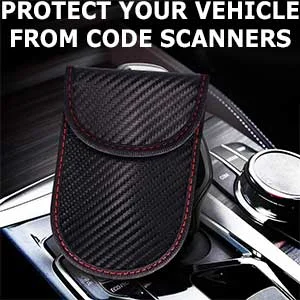Thanks...so there is a loud grinding noise and then a sort of 'crunch' as i finally come to a stop.
That doesn't sound good. New pads/rotors or not, I would get that looked at ASAP.
My car is in the city and parked on the street, so I cannot measure anything. I plan to bring it to a shop to let them measure, but we will see how that goes.
When I lived in NYC, I worked on my bike parked ona side street... in late November. Lol. If there is a will, there is a way, but that's up to you.
As to the pads question....this is my daily driver, take it on the highway, run errands, etc. No racing, track, etc. I just want quiet brakes that stop well...I would like less brake dust but not at the expense of good stopping. That is why I was wondering if you had any brands you recommend. I have been looking at maybe Centric rotors or Raybestos, and then trying to decide on the brake pads. Thinking about the Brembo low metallics or Bosch ceramics.
I can only speak from my own experience with EBC Yellowstuff and BlueStuff. Neither are suitable for your use case. IMO, sounds like you should be looking for a good/premium ceramic pad. Something like EBC Redstuff. You don't really want to get into metallics. Even semi-metallics would be hard on rotors and make corrosive brake dust. Plus their Mu curve typically takes a nose dive when temp drops, so you might glide thru that first stop sign on a frigid Winter morning, which was what happened to me back in the days. Had to get used to it then, since metallics was about the only choice for high-performance pads in the old days. Plus, these days, used of copper is banned for environmental reasons. Copper was a major ingredient what makes metallics so effective in high-temp application. I'm not sure the exact performance implications with the absence copper. I do know a lot of car mfr's had to oversize their braking systems to compensate. That partly explains why there are so many big Brembos in a lot of new cars.
Thankfully, these days, there are alternatives. Some organics have high Mu across a very wide temp range, which is one reason I got the EBCs. Expensive, yes, but worth every penny when I can do track days and still daily on them.
For you, go with a performance street compound, either organics or ceramic. Bear in mind the type of compound doesn't automatically mean it's either good or bad. Formulation and quality vary greatly in each category. While ceramics tend to be more towards the lower end of braking performance, there are a good overlap with organics, such that the best ceramics can outperform mediocre organics, or even cheap semi-metallics.
The construction of the pad wear layer and backing plate matter almost as much as the pad material. Braking capacity is determined by the overall thermo capacity of the pad/rotor system. Good pad construction helps to conduct hear away from the contact surface.
While I can't give you a direct recommendation based on personal experience, I will suggest you pay attention to the mfr's description/instructions on seating/bedding process, as well as the technical specs of each specific pad. I avoid those that don't offer detail specs, use case recommendations, and ops instructions. That's usually a sign that the vendor don't possess much technical competency. Some simply relabeled somebody else's pads to offer as their own brand and have not done the proper vetting/engineering/testing/qualifications. Not to say such offerings are automatically crap, but it does meaning you're throwing the dice blind on them.
Do you happen to know what the 2.0 came with originally? Thanks!
Dunno, but my guess is ceramic, since brake dust is minimal. They are better than the OEM ceramics that came with Stingers with Brembos, as I've not heard any 2.0 drivers complaining about pad material deposits on rotors, which is very common with Brembo OEM pads. They are actually not that bad. In the short amount of time I've driven on the OEM pads, before doing the Brembo retrofit, I found the pads to have a good initial bite and they modulate fairly decently. Pretty good match for the use cases the 2.0T Stinger was designed to fulfill.



